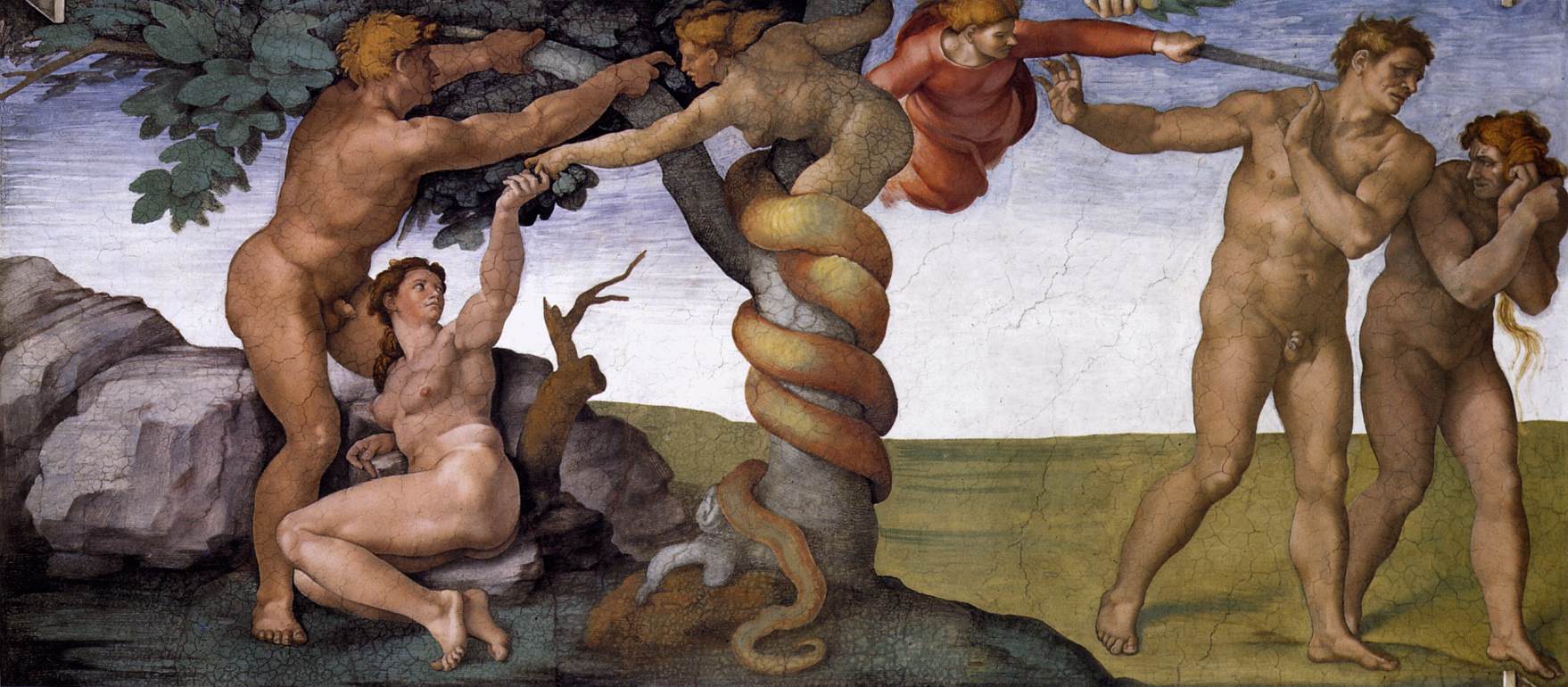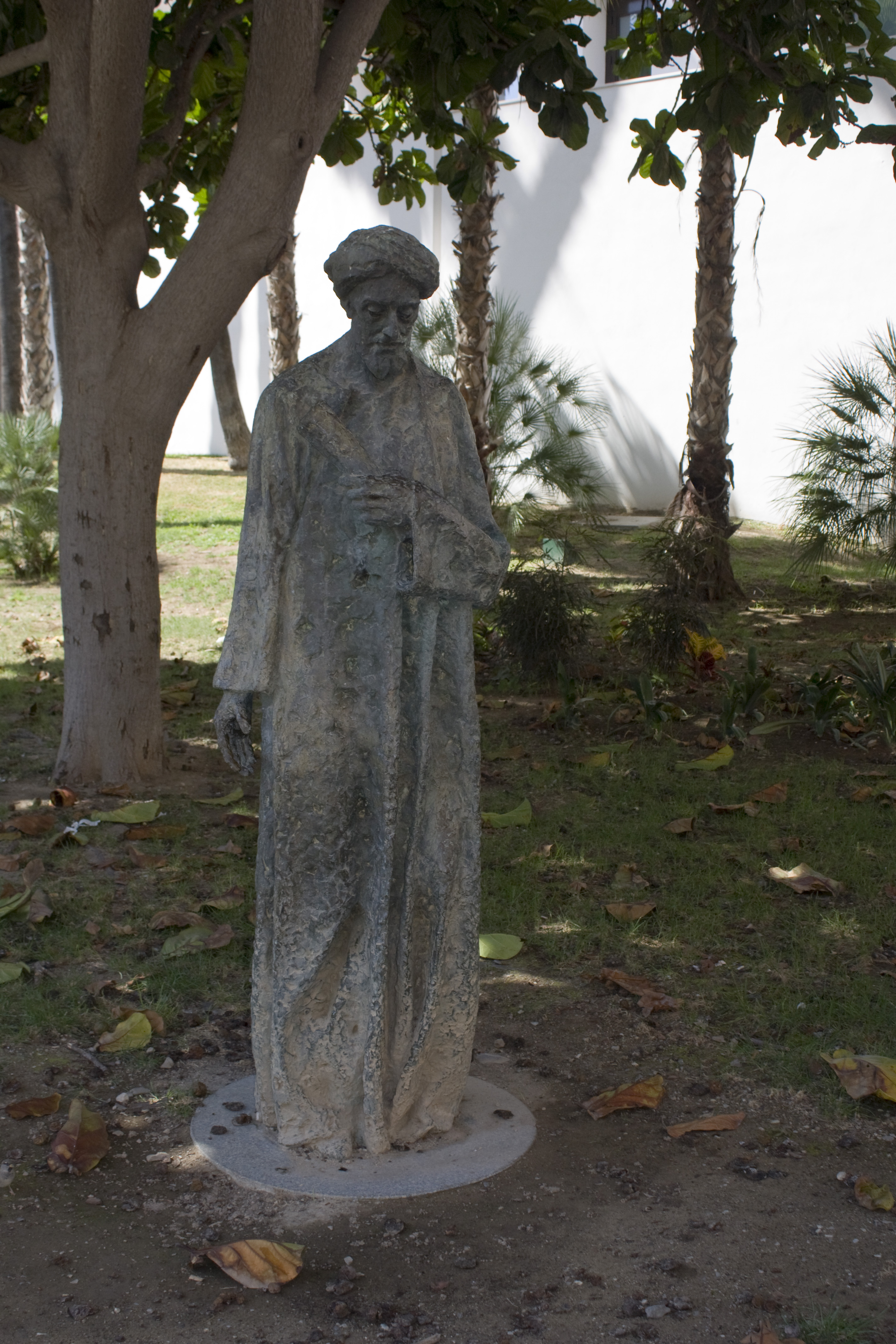|
Scotism
Scotism is the philosophical school and theological system named after John Duns Scotus, a 13th-century Scottish philosopher-theologian. The word comes from the name of its originator, whose ''Opus Oxoniense'' was one of the most important documents in medieval philosophy and Roman Catholic theology, defining what would later be declared the dogma of the Immaculate Conception by Pope Pius IX in his constitution ''Ineffabilis Deus'' on 8 December 1854. Development Scotism developed out of the Old Franciscan School, which dominated theology during the Middle Ages. This school of thought initially followed Augustinism, which dominated theology at the time. Scotus found the ground already cleared for the conflict with the followers of Aquinas. He made very free use of Aristotelianism, but in its employment exercised sharp criticism, and in important points adhered to the teaching of the Older Franciscan School–especially with regard to the plurality of forms or of souls, th ... [...More Info...] [...Related Items...] OR: [Wikipedia] [Google] [Baidu] |
John Duns Scotus
John Duns Scotus ( – 8 November 1308), commonly called Duns Scotus ( ; ; "Duns the Scot"), was a Scottish Catholic priest and Franciscan friar, university professor, philosopher, and theologian. He is one of the four most important Christian philosopher-theologians of Western Europe in the High Middle Ages, together with Thomas Aquinas, Bonaventure, and William of Ockham. Scotus has had considerable influence on both Catholic Church, Catholic and secular thought. The doctrines for which he is best known are the "univocity of being", that existence is the most abstract concept we have, applicable to everything that exists; the formal distinction, a way of distinguishing between different aspects of the same thing; and the idea of haecceity, the property supposed to be in each individual thing that makes it an individual. Scotus also developed a complex argument for the existence of God, and argued for the Immaculate Conception of Mary (mother of Jesus), Mary. Duns S ... [...More Info...] [...Related Items...] OR: [Wikipedia] [Google] [Baidu] |
List Of Franciscan Theologians
This is a list of Franciscan theologians, in other words a list of Roman Catholic theological writers belonging to the Order of Friars Minor.http://www.newadvent.org/cathen/13610b.htm Scotism and Scotists The intended arrangement is chronological by date of death. Scotism and Scotists' Old Franciscan School * Haymo of Faversham (d. 1244) * Alexander of Hales (c.1183-1245) * John of Rupella (d. 1245) * St. Clare of Assisi (1194-1253) * William of Melitora (d. 1260) * St. Bonaventure (d. 1274) * Hugh of Digne (d. 1285) * Matthew of Aquasparta (d. 1289) * John Pecham (d. 1292) * Richard of Middleton (d. about 1300) * St. Angela of Foligno (c. 1248–1309) Scotism and the Later Franciscan School * Bl. John Duns Scotus (1265-1308) * Petrus Aureoli (1280-1322) * Francis Mayron (1280-1327) * Walter Burleigh (1275-1337), possibly an Augustinian * William of Ockham (1288-1348) * Nicholas of Lyra (c.1270-1349) * Peter of Aquila (d. 1361) * Robert de Finingham (d. 1460) * Nicol ... [...More Info...] [...Related Items...] OR: [Wikipedia] [Google] [Baidu] |
Immaculate Conception
The Immaculate Conception is the belief that the Virgin Mary was free of original sin from the moment of her conception. It is one of the four Marian dogmas of the Catholic Church, meaning that it is held to be a divinely revealed truth whose denial is heresy. Debated by medieval theologians, it was not defined as a dogma until 1854, by Pope Pius IX in the papal bull '' Ineffabilis Deus'', which states that Mary, through God's grace, was conceived free from the stain of original sin through her role as the Mother of God: We declare, pronounce, and define that the doctrine which holds that the most Blessed Virgin Mary, in the first instance of her conception, by a singular grace and privilege granted by Almighty God, in view of the merits of Jesus Christ, the Saviour of the human race, was preserved free from all stain of original sin, is a doctrine revealed by God and therefore to be believed firmly and constantly by all the faithful. While the Immaculate Conception asse ... [...More Info...] [...Related Items...] OR: [Wikipedia] [Google] [Baidu] |
Augustinism
Augustinianism is the philosophical and theological system of Augustine of Hippo and its subsequent development by other thinkers, notably Boethius, Anselm of Canterbury and Bonaventure. Among Augustine's most important works are ''The City of God'', '' De doctrina Christiana'', and '' Confessions''. Originally, Augustinianism developed in opposition to Pelagianism; it was widespread in medieval western philosophy until the arrival of Thomism and Aristotelianism. Plato and Plotinus influenced Augustine in many ways, and he is considered a Neoplatonic philosopher. The Augustinian theodicy and other Augustinian doctrines such as the divine illumination and the invisible church show a strong Platonic influence. Pope Benedict XVI cautioned that all of the Western Church teaching leads to him: View of humanity "Augustine considered the human race as a compact mass, a collective body, responsible in its unity and solidarity. Carrying out his system in all its logical consequences, ... [...More Info...] [...Related Items...] OR: [Wikipedia] [Google] [Baidu] |
Philosophical School
{{Horizontal TOC, nonum=on A * Absurdism * Academic skepticism * Achintya Bheda Abheda * Advaita Vedanta * Agnosticism * Ajātivāda * Ājīvika * Ajñana * Alexandrian school * Analytic philosophy * Analytical Thomism * Anarchist schools of thought * Antipositivism * Antireductionism * Aristotelianism * Atheism * Atomism * Augustinianism * Australian realism * Averroism * Avicennism B * Brahmoism * British idealism * Budapest School * Buddhism C * Cambridge Platonists * Carolingian Renaissance * Cartesianism Cartesianism is the philosophical and scientific system of René Descartes and its subsequent development by other seventeenth century thinkers, most notably François Poullain de la Barre, Nicolas Malebranche and Baruch Spinoza. Descartes is o ... * Charvaka * Christian humanism * Christian philosophy * Classical Marxism * Collegium Conimbricense * Communitarianism * Confucianism * Continental philosophy * Critical realism (philosophy of perception) *Critica ... [...More Info...] [...Related Items...] OR: [Wikipedia] [Google] [Baidu] |
Occamism
Occamism (or Ockhamism) is the philosophical and theological teaching developed by William of Ockham (1285–1347) and his disciples, which had widespread currency in the 14th century. Occamism differed from the other Scholasticism, Scholastic List of schools of philosophy, schools on two major points: (1) that only individuals exist, rather than supra-individual universal (metaphysics), metaphysical universals, essences, or Theory of forms, forms (universals are the mind's abstract products and have no independent existence), and (2) the reduction of ontology. Content and method Occamism questions the physical and Aristotelianism, Aristotelian metaphysics and, in particular, insists the only reality accessible to knowledge is Intuition, intuitive. The Universal (metaphysics), universals, which exist only in the mind, have no correspondence with reality and are mere signs that symbolize a multiplicity of individuals. The further one goes from experience and generalizes, the more ... [...More Info...] [...Related Items...] OR: [Wikipedia] [Google] [Baidu] |
Solomon Ibn Gabirol
Solomon ibn Gabirol or Solomon ben Judah ( he, ר׳ שְׁלֹמֹה בֶּן יְהוּדָה אִבְּן גָּבִּירוֹל, Shlomo Ben Yehuda ibn Gabirol, ; ar, أبو أيوب سليمان بن يحيى بن جبيرول, ’Abū ’Ayyūb Sulaymān bin Yaḥyá bin Jabīrūl, ) was an 11th-century Andalusian poet and Jewish philosopher in the Neo-Platonic tradition. He published over a hundred poems, as well as works of biblical exegesis, philosophy, ethics and satire. One source credits ibn Gabirol with creating a golem, possibly female, for household chores. In the 19th century it was discovered that medieval translators had Latinized Gabirol's name to Avicebron or Avencebrol and had translated his work on Jewish Neo-Platonic philosophy into a Latin form that had in the intervening centuries been highly regarded as a work of Islamic or Christian scholarship. As such, ibn Gabirol is well known in the history of philosophy for the doctrine that all things, including ... [...More Info...] [...Related Items...] OR: [Wikipedia] [Google] [Baidu] |
Brethren Of Purity
The Brethren of Purity ( ar, إخوان الصفا, Ikhwān Al-Ṣafā; also The Brethren of Sincerity) were a secret society of Muslim philosophers in Basra, Iraq, in the 9th or 10th century CE. The structure of the organization and the identities of its members have never been clear."Having been hidden within the cloak of secrecy from its very inception, the ''Rasa'il'' have provided many points of contention and have been a constant source of dispute among both Muslim and Western scholars. The identification of the authors, or possibly one author, the place and time of writing and propagation of their works, the nature of the secret brotherhood, the outer manifestation of which comprises the ''Rasa'il'' – these and many secondary questions have remained without answer." pg 25, Nasr (1964) Their esoteric teachings and philosophy are expounded in an epistolary style in the ''Encyclopedia of the Brethren of Purity'' (''Rasa'il Ikhwan al-safa), a giant compendium of 52 epist ... [...More Info...] [...Related Items...] OR: [Wikipedia] [Google] [Baidu] |
Liber De Causis
The ("Book of Causes") is a philosophical work composed in the 9th century that was once attributed to Aristotle and that became popular in the Middle Ages, first in Arabic and Islamic countries and later in the Latin West. The real authorship remains a mystery, but most of the content is taken from a work by the Neoplatonic philosopher Proclus called ''Elements of Theology''. This was first noticed by Thomas Aquinas, following William of Moerbeke's translation of Proclus' work into Latin. As such it is now attributed to a pseudo-Aristotle. Title The original title in Arabic was , "The book of Aristotle's explanation of the pure good". The title came into use following the translation into Latin by Gerard of Cremona. The work was also translated into Armenian and Hebrew Hebrew (; ; ) is a Northwest Semitic language of the Afroasiatic language family. Historically, it is one of the spoken languages of the Israelites and their longest-surviving descendants, the Jew ... [...More Info...] [...Related Items...] OR: [Wikipedia] [Google] [Baidu] |
Proclus
Proclus Lycius (; 8 February 412 – 17 April 485), called Proclus the Successor ( grc-gre, Πρόκλος ὁ Διάδοχος, ''Próklos ho Diádokhos''), was a Greek Neoplatonist philosopher, one of the last major classical philosophers of late antiquity. He set forth one of the most elaborate and fully developed systems of Neoplatonism and, through later interpreters and translators, exerted an influence on Byzantine philosophy, Early Islamic philosophy, and Scholastic philosophy. Biography The primary source for the life of Proclus is the eulogy ''Proclus, or On Happiness'' that was written for him upon his death by his successor, Marinus, Marinus' biography set out to prove that Proclus reached the peak of virtue and attained eudaimonia. There are also a few details about the time in which he lived in the similarly structured ''Life of Isidore'' written by the philosopher Damascius in the following century. According to Marinus, Proclus was born in 412 AD in ... [...More Info...] [...Related Items...] OR: [Wikipedia] [Google] [Baidu] |
Plotinus
Plotinus (; grc-gre, Πλωτῖνος, ''Plōtînos''; – 270 CE) was a philosopher in the Hellenistic tradition, born and raised in Roman Egypt. Plotinus is regarded by modern scholarship as the founder of Neoplatonism. His teacher was the self-taught philosopher Ammonius Saccas, who belonged to the Platonic tradition. Historians of the 19th century invented the term "neoplatonism" and applied it to refer to Plotinus and his philosophy, which was vastly influential during Late Antiquity, the Middle Ages, and the Renaissance. Much of the biographical information about Plotinus comes from Porphyry's preface to his edition of Plotinus' most notable literary work, '' The Enneads''. In his metaphysical writings, Plotinus described three fundamental principles: the One, the Intellect, and the Soul. His works have inspired centuries of Pagan, Jewish, Christian, Gnostic, and Islamic metaphysicians and mystics, including developing precepts that influence mainstream theolog ... [...More Info...] [...Related Items...] OR: [Wikipedia] [Google] [Baidu] |




